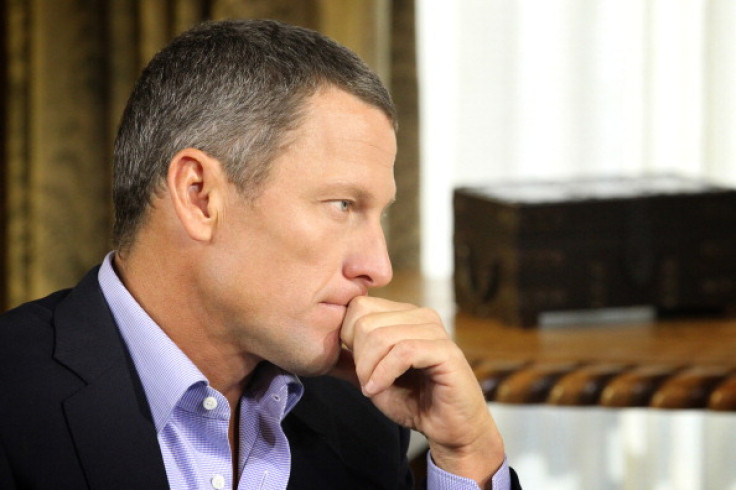Lance Armstrong: I'd dope again, says former Tour de France champion

Former disgraced Tour de France champion Lance Armstrong has said that if faced with the same decision he made in 1995, he would dope again since it was "completely pervasive" in cycling in mid-1990s.
In the first interview with BBC since he confessed to Oprah Winfrey that he used performance-enhancing drugs during his career, Amstrong, 43, says it is time he is forgiven since staying clean was not an option during the mid-1990s.
If you take me back to 1995, when doping was completely pervasive, I would probably do it again. I would want to change the man that did those things, maybe not the decision, but the way he acted. The way he treated people, the way he couldn't stop fighting. It was unacceptable, inexcusable.
"If I was racing in 2015, no, I wouldn't do it again because I don't think you have to. If you take me back to 1995, when doping was completely pervasive, I would probably do it again," said Armstrong.
"I would want to change the man that did those things, maybe not the decision, but the way he acted," he continued.
"The way he treated people, the way he couldn't stop fighting. It was unacceptable, inexcusable."
Armstrong won seven Tour de France titles between 1999 and 2005, and was stripped of all his Tour titles and banned for life from sports by the United States Anti-Doping Agency (USADA) in August 2012.
Armstrong claims he was clean when he retired, contrary to the USADA's report.
"When I made the decision, when my team made that decision, when the whole peloton made that decision, it was a bad decision and an imperfect time," said Armstrong.
"But it happened. And I know what happened because of that. I know what happened to the sport, I saw its growth."
As Armstrong won cycling new fans being a cancer survivor, his charity Livestrong raised $500 million and his supplier Trek Bicycles' sales saw a jump from $100million (£66.5million) to $1billion.
"Do we want to take it away? I don't think anybody says 'yes'," said Armstrong.
The father-of-five admitted his life had "thinned out" following the ban, which also forced him to step away from his cancer charity.
Armstrong is hopeful his ban can be reduced and has spoken to the Cycling Independent Reform Commission (CIRC) twice.
He believes the world is ready to accept him again and said: "Selfishly, I would say 'yeah, we're getting close to that time'. But that's me, my word doesn't matter any more. What matters is what people collectively think, whether that's the cycling community, the cancer community.
"Listen, of course I want to be out of timeout, what kid doesn't?"
Armstrong believes his Tour titles should also be returned, reported the BBC.
"I think there has to be a winner, I'm just saying that as a fan. There's a huge block in World War One with no winners, and there's another block in World War Two, and then it seems like there's another world war," said Armstrong.
"I don't think history is stupid, history rectifies a lot of things. If you ask me what happens in 50 years, I don't think it sits empty... I feel like I won those Tours."
© Copyright IBTimes 2024. All rights reserved.






